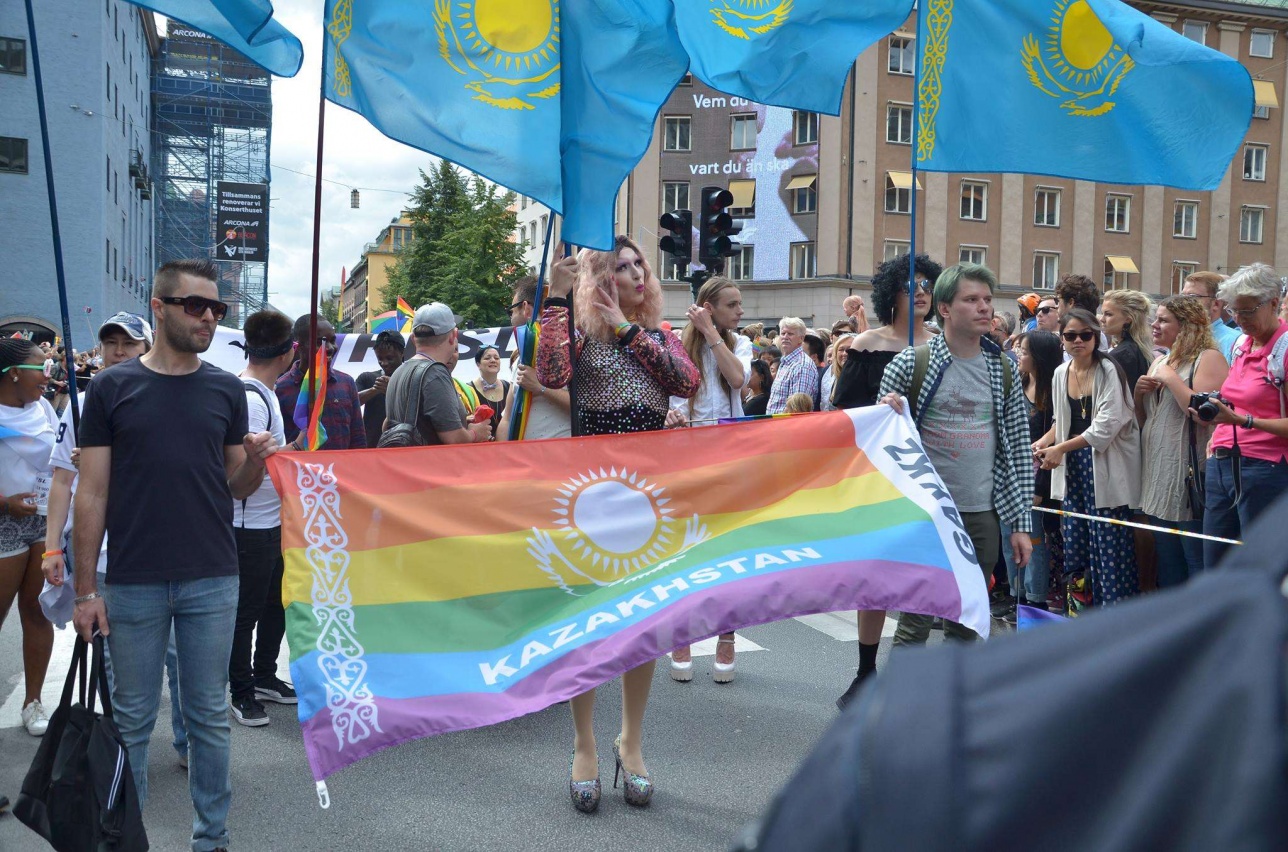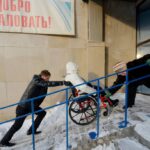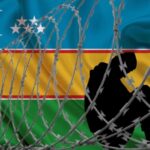Aleksandr Pavlov, 37, is detained in the Spanish capital, Madrid. The Spanish authorities are considering extraditing him to Kazakhstan. Amnesty International believes that he must not be extradited or transferred to Kazakhstan, as there he would be at a real risk of torture or other ill-treatment, and unfair trial, due to his links with the Kazakhstani opposition leader Mukhtar Ablyazov.
Aleksandr Pavlov, a 37-year-old asylum-seeker in Spain and citizen of Kazakhstan, is facing extradition proceedings following an extradition request from Kazakhstan. A request for his extradition to Kazakhstan was reviewed and authorised by the Second Criminal Section (Sección 2ª de la Sala de lo Penal) at the Audiencia Nacional on 23 July. If returned to Kazakhstan, Aleksandr Pavlov would be at risk of torture or other ill-treatment and unfair trial. Aleksandr Pavlov is appealing the decision to extradite him to Kazakhstan, but Amnesty International fears that he may be transferred to Kazakhstan in spite of the appeals process.
Amnesty International believes that the Kazakhstani extradition request is connected to Aleksandr Pavlov’s links with the Kazakhstani opposition figure Mukhtar Ablyazov, who fled Kazakhstan in 2009 and was recognized as a refugee in the UK in 2011. Aleksandr Pavlov served as Mukhtar Ablyazov’s head of security for a number of years. There have been a number of cases against Kazakhstani political and civil society actors in which criminal prosecution in Kazakhstan has been linked to their connection with Mukhtar Ablyazov and his dissenting views. Reports of torture and other ill-treatment of detainees and prisoners continue in Kazakhstan, despite repeated government claims that it is successfully addressing the problem.
Under international law, Spain is under an absolute obligation not to return anyone to a country where he or she would be at real risk of persecution or other serious human rights violations or abuses. The Spanish authorities must therefore refrain from extraditing or otherwise transferring Aleksandr Pavlov to Kazakhstan, which would constitute a violation of Spain’s international human rights obligations.
Please write immediately, in Spanish, English or your own language:
calling on the authorities to protect Aleksandr Pavlov from return to Kazakhstan, where he would be at risk of serious human rights violations. He should not be transferred to Kazakhstani authorities, even if the Kazakhstani government provides diplomatic assurances that Pavlov will not be tortured, otherwise ill-treated or given an unfair trial on return.
asking that they clarify the measures they are taking to ensure that Spain adheres to its human rights obligation not to return anyone to another country where they would be at real risk of torture or other ill-treatment.
PLEASE SEND APPEALS BEFORE 5 SEPTEMBER 2013 TO:
Minister of Justice
Sr. D. Alberto Ruiz-Gallardón
Ministro de Justicia
Ministerio de Justicia
Calle Bolsa 8
28012 Madrid, Spain
Fax: +34 (0) 91 390 22 77
Email address: ministro@mju.es
Salutation: Dear Minister / Sr. Ministro
And copies to:
Chief Prosecutor
Sr. D. Javier Zaragoza Aguado
Fiscal Jefe de la Audiencia Nacional
Fiscalía General del Estado
Calle Prim 12
28071 Madrid, Spain
Fax: +34 (0) 91 397 32 86
Salutation: Dear Chief Prosecutor /
Sr. Fiscal Jefe
ADDITIONAL INFORMATION
Aleksandr Pavlov’s lawyer has stated that Aleksandr Pavlov arrived in Spain on 11 December 2012 and was detained in a train station because his name had been placed on Interpol’s wanted list at the request of Kazakhstani authorities. In January 2013, he submitted his application for asylum, which was rejected in the first instance on 5 July 2013. Meanwhile, the Kazakhstani authorities have requested Aleksandr Pavlov’s extradition, which was authorized by the Second Criminal Section (Sección 2ª de la Sala de lo Penal) at the Audiencia Nacional on 22 July 2013. Aleksandr Pavlov is also appealing that decision.
In Kazakhstan, Aleksandr Pavlov has been charged with “expropriation or embezzlement of trusted property” and “plotting a terrorist attack”. Aleksandr Pavlov and his lawyer believe that these accusations are fabricated and that Aleksandr Pavlov is wanted in Kazakhstan for his links with Mukhtar Ablyazov, a major opposition figure, for whom Aleksandr Pavlov has worked as a trusted and long-serving security guard beginning in 1995. Mukhtar Ablyazov, the main political opponent of Kazakhstani President Nursultan Nazarbaev, was recognised as a refugee in the UK in 2011 because he was deemed to have a well found fear of persecution in Kazakhstan.
There have been a number of cases against Kazakhstani political and civil society activists in which criminal prosecution was linked to their dissenting views and their links with Mukhtar Ablyazov. These cases have been marked by violations of the principles of fair trial, and it is widely believed that final judgments resulting in convictions of these persons have been subject to political influence. On 31 May 2013, Mukhtar Ablyazov’s wife and daughter were illegally expelled from Italy and forcibly transferred to Kazakhstan in violation of Italian and international law.
Torture and ill-treatment are routine interrogation methods in Kazakhstan. Torture and ill-treatment are also common to discipline convicted prisoners. Please, see Amnesty International’s latest report on torture in Kazakhstan Old habits: The routine use of torture and other ill-treatment in Kazakhstan (EUR 57/001/2013):
http://www.amnesty.org/en/library/info/EUR57/001/2013/en. Amnesty International’s recent report Return to torture: Extradition, forcible returns and removals to Central Asia (Index: EUR 04/001/2013) highlights the risk of torture and other ill-treatment of certain groups, including political dissidents and those associated with them, on return to Kazakhstan. The report is available at http://www.amnesty.org/en/library/info/EUR57/001/2013/en.
SOURCE:
http://amnesty.org/en/library/asset/EUR41/002/2013/en/d6a4b5c7-b4ba-4a2d-a918-7f2deb1c1413/eur410022013en.html

















